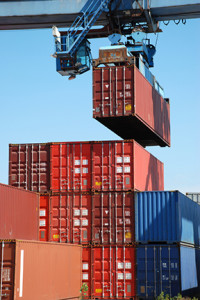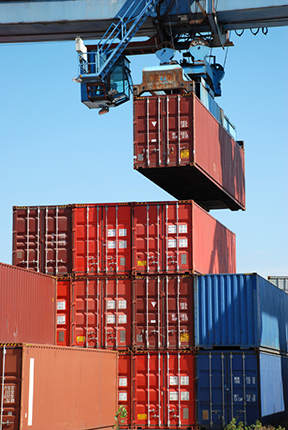
The Bureau of Customs (BOC) has laid the guidelines for overtime work by its personnel at the Port of Manila and the Manila International Container Port, opening the possibility of extending work hours for the country’s key international gateways.
Customs Commissioner John Phillip Sevilla signed Customs Memorandum Order No. 09-2014 on May 8, which allows overtime payment for personnel at both ports but only “for incumbents of plantilla positions of division chiefs and below, as well as casual employees”.
Such pay will “be charged against savings of the Bureau of Customs, which may be determined at the end of every quarter by the Budget Division.”
Sevilla explained that “Overtime services shall include those rendered beyond eight hours of work on a regular work day (Monday to Friday), those rendered on rest days (Saturday and Sunday) and those rendered on public holidays.”
The CMO could not have come at a better time because Manila ports are buckling under severe container congestion brought about by the Manila truck ban implemented in late February.
The ban has had widespread negative effects on the supply chain, including depressed revenue collections for the BOC to the tune of P100 million to P150 million a day.
In the memorandum, Sevilla said the bureau’s X-ray units and the Management Information Systems and Technology Group will also be “directly involved in the needed extended operating hours.”
The CMO came into effect on May 1 and remains in effect until revoked.
Container pileup
The container pileup resulting from the Manila daytime truck ban has forced at least two major shipping lines to skip Manila ports last week, according to PortCalls sources.
The vessels had no choice but to omit Manila from their ports of call because their cargo could not be unloaded due to the continuing problem of container congestion at the ports.
The Manila International Container Terminal (MICT) temporarily stopped accepting empty containers from May 7 to 12 to stem the box pileup. This is amid considerable slowdown in the entry and discharge of containers due to lack of trucks unable to provide their usual services because of the truck ban.
In an advisory on May 2, MICT said it will “strive to resume empty acceptance on May 12 and this will be fully dependent on the the results of next week’s import pull out by consignees and brokers as well as completed evacuation plans from all carriers. Another advisory will be released by the end of next week clearly defining the plan for Monday, May 12.”
It added, “We were forced into this difficult and costly decision because of the effects of the Manila Truck Ban. Our main concern today is the overall efficiency of the Manila International Container Terminal and protecting its loyal clients, the port user community, while maintaining our economic responsibility for trade facilitation.”
On top of the limited schedule for delivery, an additional restriction for trucks is in place: Those loaded with empty containers are banned from entry into Manila during the allowed daytime delivery window. Those with empties exiting Manila may, however, ply the streets during the same period. This policy is a constant source of confusion among stakeholders and has reportedly given rise to corruption among traffic enforcers.
As of press time, PortCalls was still waiting for word on MICT’s utilization levels from officials of the facility’s mother company, International Container Terminal Services, Inc.
Truck drivers as cabbies
Offdock container yard/container freight stations (CFS) are also now brimming with empty containers, Alexander Ong, president of the Association of Off-dock CFS Operators of the Philippines (ACOP), told PortCalls in a phone interview.
Laden boxes for stripping by off-dock operators are likewise trapped inside ports because of the lack of trucks to service them, Ong said.
He said he has been told that other container yards in Metro Manila are just as full, and that some are now stacking containers seven boxes high, which he described as an “unsafe” practice.
With truck turnaround stretching to 72 hours and with little to do in between, some truck drivers have opted to drive taxis instead, Ong noted.
To help remedy the congestion, ACOP is planning to open a temporary yard for empty containers and is seeking an audience with foreign shipping lines on the matter, he said.
Like everyone else, Ong said offdock CY/CFS operators are incurring additional costs – specifically on demurrage — because of the container pileup problem. The additional fees are passed on to freight forwarder-clients who will also ultimately pass these on to consignees, jacking up logistics costs.
Ong said ACOP members pay as much as P30,000 per twenty footer to international shipping lines when empties are not returned on time.
For their part, some international carriers have imposed an emergency surcharge to address the pileup.
Strike by customs brokers
The situation has not been helped any by the protest action of some waterfront stakeholders led by the Aduana Business Club, Inc (ABC) whose members include customs brokers, exporters and truckers. Some ABC members went on strike beginning May 2 and vowed to keep on until the national government acted on the problem.
The action was not as widespread as the one spearheaded by the Confederation of Truckers Association of the Philippines (CTAP) in late February.
ABC said the truck ban has driven up trucking rates to as much as P20,000 per container. It expressed concern that rates could even triple during the peak season which traditionally starts in September.
Truckers said they were forced to hike rates because of fewer turnarounds due to the limited delivery window, and the high incidence of towage and the subsequent fines by traffic enforcers.
While the Manila city government remained unmoved by the protest, the strike organizers’ call for other waterfront stakeholders to join the industrial action has reportedly gained support.
Late last week, PortCalls sources said some customs brokers will join the protest on Monday (May 12). The brokers will refrain from lodging entries with the BOC to compel the national government to act.
Charo Logarta-Lagamon, officer-in-charge of the BOC’s Public Information and Assistance Division, told PortCalls in a text message the agency has no data yet on its revenue losses arising from the ABC strike, but that based on the three-day truck holiday staged by CTAP right after the ban was implemented in February, this could run to about P150 million every day.
The operator of the Manila South Harbor, meanwhile, said it is “business as usual” at its port.
In a text message to PortCalls on May 6, an official of South Harbor operator Asian Terminals Inc said: “While container inventory is above normal, the port is not congested. There is no vessel waiting to berth. Container deliveries and acceptance continue to be served.”
The port operator added it was working closely with stakeholders, including the port authority, “to sustain the efficiency of the port.”
“We continue to take deliveries and maximize free weekend deliveries to avoid situation complication,” ATI said. –– Roumina M. Pablo






Hi Liza,
Good morning, can i have a soft copy of CMO 09-2014, to further understand the Operating Hours of the Bureau. Thanks
Jen, the CMO is embedded in the story (text highlighted in red).
Comments are closed.